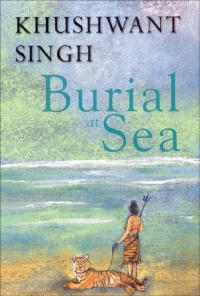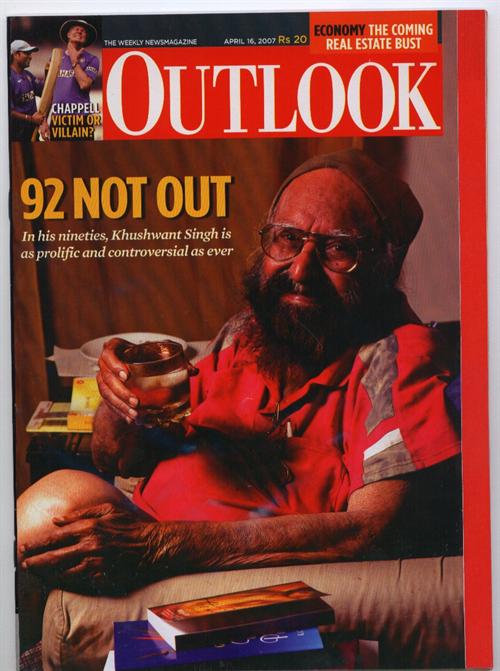 Burial at Sea
Burial at Sea

In this, his first novella in five years, one of India's most widely read authors returns to territories he knows best: twentieth-century Indian history, bogus religion, and sexuality. After Nehru, Victor Jai Bhagwan is Mahatma Gandhi's favourite Indian--a brilliant young man with the temperament of a leader and fiercely committed to his country. Though Victor adores and respects Gandhi, he disagrees with the Mahatma's vision for the future of India. He returns from university in England determined to bring the benefits of modern industry to the subcontinent, and within a few years of India's independence, becomes the country's biggest tycoon. But this is not the only ideal of Gandhi's that he defies: facing a midlife crisis, he falls passionately in love with a tantric god-woman who introduces him to the pleasures of unbridled sexuality, but also becomes the reason for his downfall. Comic, tender, and erotic by turns, Burial at Sea is vintage Khushwant Singh.
|
|

Khushwant Singh Ŕ nato nel 1915 a Badali, nel Punjab. Dopo aver studiato al Government College di Lahore e al King's College di Londra, ha lavorato a lungo presso l'Alta Corte di Lahore. Scrittore tra i pi¨ famosi e venduti in India, Singh ha pubblicato numerose opere, tra le quali una monumentale Storia dei Sikh e i romanzi Train to Pakistan, La compagnia delle donne, Delhi.
Khushwant Singh is a senior prominent Indian novelist cum journalist. He was born on 2 February 1915 at Hadali in British India that is now a part of Punjab in Pakistan. A significant post-colonial writer in the English language, Khushwant Singh is known for his clear-cut secularism, humor and a deep passion for poetry. His assessment and comparison of social and behavioral traits of people from India and the West is full of outstanding wit. Here's more information on the biography of Khushwant Singh.
Infact, Khuswant Singh's writing is so popular that his weekly newspaper column, "With Malice towards One and All", published in many Indian national dailies is among the most widely-read commentaries in the country. Singh completed his bachelor's from the Government College at Lahore and thereafter, pursued further studies in law at King's College in London, UK. Sir Sobha Singh, Khushwant Singh's father, then used to work at a reputed builder in Lutyens' Delhi. Read on about life history of Khuswant Singh.
Once while still practicing as a lawyer in the High Court of Lahore, Khushwant Singh was on his way to his family's summer residence at Kasauli at the foothills of the Himalayas. It was just days prior to the partition of India and Pakistan in August 1947. Singh was driving his car when he came across a jeep full of Sikhs on an unusually vacant road that day. The Sikh men pridefully narrated to him how they had just butchered away all residents of a Muslim village.
All these instances found vivid description in the book 'Train to Pakistan' Khushwant Singh later wrote in 1956. In the time to come, Singh was appointed to edit Yojana, a journal published by the Indian government. Other publications whose editing Singh was encharged with were the Illustrated Weekly of India, a newsweekly and two other major Indian dailies - The National Herald and the Hindustan Times. Under his leadership, The Illustrated Weekly came to be hailed as India's pre-eminent newsweekly.
There's many other kudos bagged by Khushwant Singh. For instance, Singh was a Rajya Sabha member of the Indian parliament from 1980 to 1986. He was also honored with the Padma Bhushan award in the year 1974 for service to his country, but he returned the award in protest against the siege of the Golden Temple by the Indian Army in 1984. Undeterred, the Indian government awarded Singh an even more prestigious honor, the Padma Vibhushan in the year 2007. |